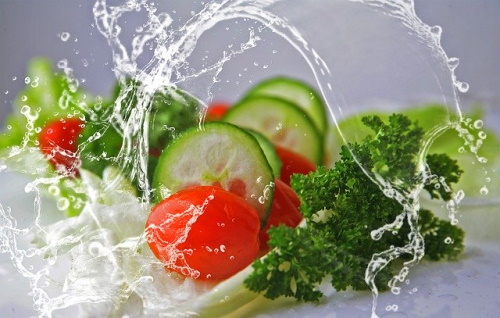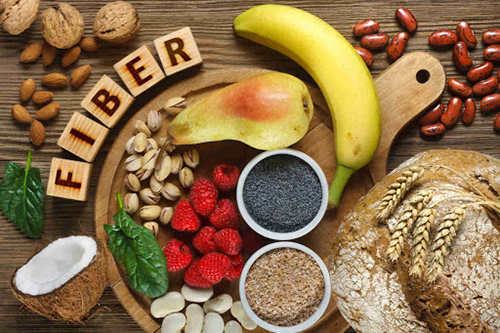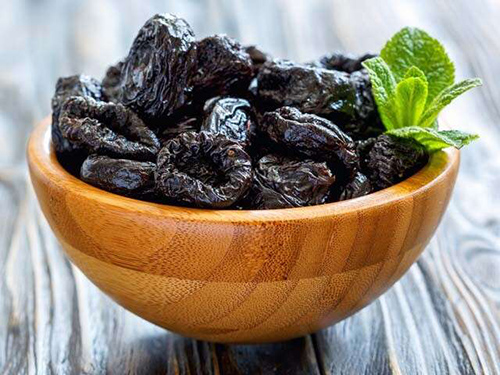Contents
Before we get into the foods that help with constipation, let’s take a closer look at what constipation is. It is the slow, difficult transit of the contents of the intestine, with infrequent evacuations and excessively firm feces.

Most cases of constipation are functional and are due to an atony or weakness in the musculature of the large intestine. Organic causes appear only in very concrete cases, with cancer of the colon or rectum being most serious.
From two bowel movements a day to once every other day is considered normal. If it is less frequent, it is considered constipation. The factors that precipitate or predispose to atonic functional constipation are these:
- An improper diet, with insufficient water and/or fiber intake. Consequently, the intestinal lining is not stimulated and is weakened.
- Irregular bowel habits: If, because of nervous tension or hurry, one ignores the biological call to defecate, it is possible to lose the intestinal reflex.
- Abuse of laxatives: This produces a perpetual state of inflammation in the intestinal mucosa, which results in desensitizing it to normal stimuli.
- Lack of physical exercise necessary to stimulate the reflex to defecate. Once these four causes are corrected, most of the functional atonic constipation is corrected, as well. A proper diet is essential to the solution.
Foods That Help With Constipation
WATER: If one does not drink enough water, the body obtains it where it can; for example, from the feces. Proper hydration is a necessary condition, although insufficient by itself, to correct constipation on average, one should drink from 1.5 to 2 liters of water or liquids per day.

FIBER: After plant-based foods have been digested, their fiber, which does not pass to the bloodstream, remains in the intestine where it forms the bulk of the feces. When fiber is lacking in the diet, the feces become hard and dry, causing their transit through the intestine to become very difficult, resulting in constipation. Fiber, together with water, is one of the most important of the foods that help with constipation and is essential for normal intestinal function.
WHOLE GRAINS: These provide soluble fiber that retains water in the feces, thus softening them and improving their movement through the intestine. A breakfast that provides whole-grain flakes of oats or other grains, together with plums (prunes) and figs (fresh or dried) are among foods that help with constipation.
WHOLE-GRAIN BREAD: Both true whole-grain bread and white bread with bran added combat constipation, although the former is more nutritious and healthful.
WHEAT BRAN: Approximately 42 percent of bran’s weight is insoluble fiber, which stimulates the intestine and combats constipation. If it is taken in isolation, separated from the whole grain, no more than 30 g should be used daily since it can reduce the absorption of certain minerals and even cause intestinal obstruction.
FRUIT: Fruit provides water and fiber, which facilitates the feces’ movement through the intestine. Dried fruits are also effective against constipation, particularly raisins, figs, and prunes.
Top Rated Supplements for Constipation
Apples are Excellent in Cases of Constipation and Diarrhea
VEGETABLES: Vegetables, because of their fiber content, increase fecal volume and soften it, relieving constipation.
LEGUMES: Fiber-rich legumes are a mild laxative.

PRUNES: Prunes contain pectin (a type of soluble fiber) with soothing and laxative properties, as well as substances that stimulate intestinal contractions. Because of these, prunes are a gentle and effective laxative. The use of plums or prunes overcomes intestinal atony and helps reeducate the bowels.
FLAXSEED: Flaxseeds are eaten whole, well chewed, or ground as flour. They have a laxative effect because of their soluble fiber content, which also has an emollient effect on the intestinal mucosa.
APPLE: Apples are effective in cases of constipation as well as diarrhea since their action is to regulate movement through the intestine. One or two apples eaten on an empty stomach contribute to overcoming intestinal atony, which is the most frequent cause of constipation.
GRAPE: In addition to combating constipation, grapes balance the intestinal flora, facilitating proper digestive function. Grapes are effective fresh or dried (raisins).
FIG: Fresh figs or dried figs that have been soaked soothe the intestine and stimulate peristaltic action similarity to the way prunes do.
RHUBARB: Rhubarb stalks are a mild laxative.
HONEY: Fructose, a sugar that represents nearly 50% of honey’s dry weight, has laxative properties when it is not completely absorbed in the small intestine.
DISCLAIMER: All content on this website is presented solely for educational and informational objectives. You should not rely on the information provided as a replacement for advice, diagnosis, or treatment from a qualified medical expert. If you are pregnant, nursing, or have any preexisting medical concerns, you should talk to your doctor before using any herbal or natural medicines.
REFERENCES
- George D. Pamplona-Roger, M.D. “Encyclopedia Of Foods and Their Healing Power.” George D. Pamplona-Roger, M.D. Encyclopedia Of Foods and Their Healing Power. Trans. Annette Melgosa. Vol. 2. Chai Wan: Editorial Safeliz, 2005. 210-211. [foods that help with constipation]
- National Institute of Diabetes and Digestive and Kidney Diseases: https://www.ncbi.nlm.nih.gov/books/NBK513291/
- Mayo Clinic: https://www.mayoclinic.org/diseases-conditions/constipation/symptoms-causes/syc-20354253
- American Gastroenterological Association: https://patient.gastro.org/constipation/
- Harvard Health Publishing: https://www.mayoclinic.org/diseases-conditions/constipation/symptoms-causes/syc-20354253
- Academy of Nutrition and Dietetics: https://www.eatright.org/
- Cleveland Clinic: https://health.wordpress.clevelandclinic.org/tag/constipation/
- American Psychological Association: https://www.ncbi.nlm.nih.gov/pmc/articles/PMC5193306/
- HelpGuide: https://www.helpguide.org/
- Harvard Health Publishing: https://www.health.harvard.edu/mind-and-mood/the-impact-of-stress-on-your-gut
- Mayo Clinic: https://www.mayoclinic.org/diseases-conditions/constipation/diagnosis-treatment/drc-20354259
- American College of Sports Medicine: https://www.acsm.org/
- Runner’s World: https://www.runnersworld.com/health-injuries/g20979836/best-tips-for-gross-parts-of-running/
- WebMD: https://www.webmd.com/digestive-disorders/constipation-relief-tips
- Healthline: https://www.medicalnewstoday.com/articles/318694
- National Center for Complementary and Integrative Health: https://www.ncbi.nlm.nih.gov/pmc/articles/PMC4433664/
